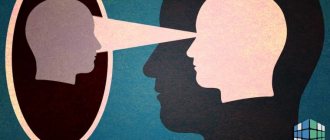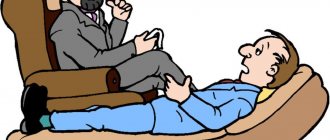Ordinary people call them outcasts or homeless people. Psychologists use the terminology “marginal”. You should understand the meaning of this word, since it is not so narrow and unambiguous. Having considered examples of marginalized people, we can identify types, which is what the online magazine psytheater.com will do.
Public propaganda is the desire for implementation. Each person achieves certain successes that allow him to maintain an average social level. Having a home, family, money, friends, work and other available attributes indicates that a person is socially healthy. However, a category of people that is separated from society is considered separately. They are called marginalized. In other words, they can be called homeless. However, not only this part of people can be called marginal.
If we consider this concept more fully, we can note that some of your friends may be called marginalized.
Who is the marginalized?
Who are called marginalized? These are individuals who are excluded from all groups in society. They are on the border between groups, but are not included in any of them. This can be either a voluntary desire of the marginalized person himself, or a forced measure due to the person’s rejection by other people.
The marginalized, one might say, is excluded from society, since it does not belong to any social group. He does not belong to the family, is not a member of public organizations, is not part of the work team, etc. The most striking example of a marginalized student is a student who is not loved and hated by other students. Such a student is also called an outcast or a black sheep.
Marginality is associated with personality degradation. Anyone who strays from the “correct” path accepted in society, strays from the pack, goes in his own direction, which does not obey social laws, is called a marginalist. Citing the example of homeless people and outcasts as examples of marginalized people, people develop a clearly negative attitude towards this concept. However, not everything is so simple.
Marginalized people are not always “degraded” people who need social assistance and even psychiatrist consultations. There are categories of people who are also considered marginal, but they cannot be called unhappy. For example, emo is a subculture that promotes its lifestyle. Outwardly they may seem unhappy, but this does not mean that they are unhappy.
Marginal people are also called lumpen. However, this is a misconception. The term “lumpen” was coined by Karl Marx, who included beggars, bandits and vagabonds among them. Despite the fact that these two categories are estranged from society, they are still different castes:
- Lumpen is a physically and morally degraded, declassed element, the “dregs” of society.
- Marginal is a person living separately from society.
Lumpens and marginalized people do not belong to any social group, so they cannot be assigned to anyone. However, lumpen people are individuals who have sunk to the very bottom, degraded. And the marginalized are still individuals separate from society, not belonging to any group.
Who can be classified as a marginalized population?
Those who are called marginalized in today's realities are, in fact, most often lumpen. The unforgettable Karl Marx included beggars, vagabonds, bandits, and degenerate people into this layer of the population.
According to the prevailing stereotype, marginalized people and lumpen people have common interests and lead a similar lifestyle. This is not entirely true.
What is the difference between marginalized people and lumpen people?
Lumpens are morally degraded people who are at one of the stages of degradation and are gradually descending lower and lower, approaching an animal state. The marginalized can be lumpen, but not always. Marginalized are those who do not fit into society, have their own philosophy and lead a lifestyle that is unusual for those around them.
Who can be considered marginalized:
- Voluntary hermits who do not recognize social values (downshifters, freelancers);
- Migrants who were unable to integrate into the cultural environment of the country in which they now live;
- People who left their usual place of life (village residents in the city and vice versa);
- People with physical disabilities or mental illness;
- Carriers of dying national cultures;
- Adherents of bad habits to an extreme degree (gamblers, drug addicts, alcoholics);
- Followers of religious minorities, sectarians;
- Those who belong to radical political movements preach terrorism;
- People who find themselves below the poverty line;
- Those released from prison after a long period of restriction of freedom.
Meaning of the word marginal
How does sociology define the meaning of the word “marginal”? This is a person who practically does not participate or is completely excluded from any social group (economic, cultural, political). The marginal is considered excess material that needs to be looked after, monitored, and controlled. On the one hand, no one needs the marginalized. On the other hand, society cannot get rid of it due to its democratic approaches to each individual.
A marginalized person may physically be in a group, but not actually be considered a member of it. Let's remember the example of a schoolboy who is an outcast in his class. Physically, his body is in a group of other children, but his classmates do not communicate with him, are not friends, ignore him, and bully him.
The marginalized is physically in the group, but psychologically, emotionally and morally located outside of it. He is not part of it, does not participate in the creation of its biography, does not develop it, does not perform certain roles, does not adhere to its norms and rules. The presence of such a personality allows the group to understand where its boundaries end. The marginalized person himself has an objective vision of the group, he is free and can leave it at any moment, since he is not connected with it in any way.
In the classic version, a marginalized person is a person who is on the border of two groups (and not excluded from them). It is as if he is a member of two groups that, in their orientation, rules or activities, contradict each other. However, a person feels a conflict within himself, disagreement with any of the groups. He cannot make a final choice which group to join, abandoning the other. Thus, a marginalized person is a person who is part of two diverse groups, but does not ascribe himself to either of them.
Anyone can be marginalized! Here you just need to degrade, sink to the very bottom, abandon everything that is valued by society. You can become such a person if you stop striving for those heights that are considered socially significant:
- Work to earn a lot of money.
- Looking for a loved one to start a family with.
- Lead a healthy lifestyle.
- Be interested in social life and participate in it.
- Have friends, establish connections with them.
- Take care of your appearance and maintain hygiene.
- Improve: develop strengths and eliminate weaknesses.
- Study to become an educated person.
If, for example, you don’t do all of the above, you can easily become one of the marginalized. To achieve a marginal lifestyle, one only needs to abandon the progress and achievements of society, its rules and etiquette, aspirations and propaganda. You should stop being a law-abiding citizen who wants to be part of society, and start living simply your own life, setting your own rules that do not affect the interests of society.
It should be understood that a marginalized person is not always a person suffering from pathological addictions, an asocial and dysfunctional person. There are individuals who prefer solo swimming. They do not belong to any group, but may work or have a family. They create the integrity of the team, but do not participate in its development:
- At work, a person does not communicate with anyone, but does work.
- In a family, a person is simply listed as a member, but does not participate at all in the lives of his relatives.
The first marginalized were slaves who managed to get rid of their slave existence, but they were not able to adapt to the new conditions immediately. Thus, they were no longer classified as slaves, but they could not yet be called members of a cultural society.
A person can be given the status of “marginal” by anyone who, for one reason or another, does not accept him, condemns his way of life, or does not consider him a normal member of society. This form of “labeling” or “branding” is inherent in many cultured people who, unfortunately, are not yet fully educated, and therefore do not understand the essence of marginal life. However, if a person is truly marginalized, then he can decide for himself whether to continue to remain so or return to a social way of existence.
Signs of marginality:
- Severance of spiritual, social, economic ties in previous life.
- Mental internal problems due to inability to find one's place.
- Mobility due to lack of attachments and housing.
- Ease of involvement in illegal activities.
- Development of a personal value system.
- Hostility to social norms.
How do marginalized people influence society?
To understand how marginalization affects society, you need to understand what types of marginalized people there are. In a good situation, this state is limited in time and the person is able to adapt quite quickly to the proposed circumstances. The only exceptions are people who acquired status involuntarily (refugees) or who consciously chose this path (tramps, extremists, sectarians, religious fanatics, revolutionaries, radicals). In sociology, it is customary to divide this phenomenon into several types. Representatives of each of them influence society in their own way.
▪️Marginality in politics. This is the name given to those who are forced to leave the country due to disagreement with the new order. An example of such a phenomenon: 2 million Cubans forced to leave their own country.
▪️Marginality in ethnic culture. Children from mixed marriages can become representatives of such marginality. In modern society, national boundaries are more blurred due to the principles of tolerance, unlike in past centuries. This phenomenon was especially pronounced in America, where children born to white emigrants and indigenous people and former African-American slaves were outcasts for a long time.
▪️Marginality in religion. Such people include those who have not decided on a confession or religion. There are five main faiths in the world and many of their branches. Those who do not consider themselves to be one of them, or have created their own church, are considered religious marginalized. At the same time, followers of radical teachings will be marginalized of a different type.
▪️Marginality in society. This kind of phenomenon develops in a society of people who have survived cataclysms, natural disasters, political upheavals, and wars. Large groups of people lose their previous status and cannot adapt to the new circumstances that the social system offers them. They often leave the country, becoming political marginals.
▪️Marginality in the economy. Most often, this type of people includes the unemployed and those who live below the poverty line, unable to provide for their needs. Such people voluntarily or involuntarily lose their jobs and the ability to support themselves. Instead, they exist at someone else's expense, receiving financial assistance from other people and government benefits.











